Greetings, fellow travelers, generous readers, treasured friends —
First! I am terribly behind on responding to comments, and I am very sorry about that. I’ll catch up this weekend, but I just want to let you know how much I appreciate your readership, your insights and observations, and your time.
Now, as for this week—I just did the thing I always do. As I was wrapping up the edits on one post, I realized that I needed to post something else altogether. While usually news or travel or the forces of chaos in general throw a wrench in my editorial plans, this time it's the calendar (I looked at it today—I rarely do) and realized that by this time next week, we'll be into the complicated American holiday weekend of Thanksgiving (Nov 28) and Native American Heritage Day (Nov 29).
Whomever you are, wherever you'll be this holiday season, I imagine you might at some point hear the echo or see the shadow or feel the touch of the hand of the ghost of your own holiday seasons past.
As winter touches the back of my neck with cold fingers, even here in the south where I've stopped for a few days, I find myself looking over my shoulder, not with longing or nostalgia or regret, but with surprise: no matter how many miles I travel, no matter how light, still I carry my memory with me, and still it weighs nothing at all.
I'll be on the road when I post next week, on my own and without a turkey in sight, though I'm tempted to plant myself in a truck stop diner—I should be somewhere in the vicinity of I-40—and people-watch and eavesdrop and offer my fellow vagrants some company at the counter and a penny for their thoughts. I'm looking forward to it. I've done my turn as high-heeled holiday host, and a blue plate special in jeans and flannel at the counter of a roadside diner in a nameless town sounds peaceful, anonymous, companionable in its own strange way. We're all strangers in a strange land these days.
I know some of you are also on the road (and if you know of a good turkey special on the I-40 corridor, give me a shout), but whether you're airborne or grounded, homebound or homeward bound, this week I wanted to offer you a story into which you can escape, should need or desire arise. If the present tense is too much—and one can certainly see why it might be—here: I'm unlocking the vault where I keep my own seasons past. There might be a story, a memory, a photo or trinket in there that you like. Keep them—they're yours.
This particular story—an essay called "Whether to Brine a Bird"—was originally published in the Bellingham Review (Winter 2017) and won the Annie Dillard Award for Nonfiction. I wrote it while cooking a holiday dinner. (Nothing burned.) The text is below—if you’re reading on email, you’ll need to click the link at the bottom that says something like “read the whole dang post”—and my friend Marlee was kind enough to record a reading of it, too, which you can listen to and/or watch here.
May this season—and the coming visitation of seasons past—bring warmth and laughter to you.
xoM
Whether to Brine a Bird
There is no dignity in brining a bird. No dignity in being the bird, plucked and featherless, pimply and pale, naked and unbirdlike, and none for the cook while we’re at it. Sleeves pushed up past the elbows, arms thrust elbow-deep in the water, prickled with the saltwater cold. The kitchen too hot, the sweat at the temples, the curl of the hair in the heat.
You do this after dinner the night before you plan to roast the bird. In the early months of winter, dusk falls by late afternoon, then it’s black dark by dinner, and afterward you brine the bird. Clean up supper. Clear the table, scrape what’s left off the plates. What goes in the brine: pickling salt and peppercorns, quartered onions, lemon halves. Bay leaves and juniper berries, rosemary sprigs and branches of thyme. You will want to wash the bird well to rid it of stems and bits of bark. No one likes bits of bark on their bird. In the time it takes to brine a bird, you could drive several states away and stay there. You could drive to Kansas. You could rent a room. You could deliver a difficult baby, naked and wet as a turkey, screaming, black hair plastered to its head.
Coriander seeds, fennel seeds, black or brown mustard seeds. Riesling or beer. One whole fresh kosher turkey, patted dry, liver reserved for stuffing or gravy, neck and giblets reserved for stock. The neck, liver, gizzard and heart will sit on a plate on the counter next to the sink in which you are brining the bird in a soup pot. For large birds you can brine in the sink itself, if well scrubbed, but not with bleach. Do not brine a bird in bleach. Do not brine a bird in cider, or in broth. Both are fine for the gravy, but not for the brine. There are other methods, but they are wrong.
The light in the kitchen is yellow. The windows are dark. Your reflection moves through the kitchen, stands at the sink.
The place of the husband is to carve the bird, unless the father is living, in which case the father should carve. If there is no father present or living, the job defaults to the husband. In the absence of a husband, do it yourself. This is not traditionally the task of a woman, but sometimes you have to punt. There are many methods of carving. Study them in advance to avoid ripping the bird apart, joint from joint and limb from limb. Do not hack at the backbone. Do not saw at the breast.
I have never understood the need to butterfly a bird: split down the middle and splayed. You would butterfly a leg of lamb, sure, or have the butcher do it, but not a bird. A Cornish game hen, maybe. I was given a cookbook for my first wedding, at which I was indignant: The Beginner Gourmet. I was not a beginner. I could’ve butterflied a Cornish game hen, had I been put to the task. The cookbook was from my mother’s sister, who of course meant well. I was young: at the time, they still said things like young wife. I was a young wife. But I was not a beginner. I was not the ditzy young wife burning water and serving a raw roast. I pictured that young wife weeping in the kitchen, head in her hands. I would not have wept. But then, I would not have cooked the roast wrong, either.
To cook a roast, stab slits in it. Push slivers of garlic into the slits with your thumb. Rub all over with a paste of oil and coarsely chopped herbs, using your bare hands. Do not dab daubs tentatively here and there on the meat with a spoon. Do not gently paint the roast with the paste using a pastry brush; a pastry brush will season over time like a cast iron pan; use it for a roast, and your biscuits and pastries will smell like garlic for the rest of your life.
When chopping, try not to cut off your thumb, or the pad of your thumb. My grandfather was a grocer, started as the butcher boy. Back then, you could still bring your cow or pig to the back door of the butcher’s and have them kill it for you, bleeding it out. This despite the fact that skinning your kill is a point of pride. I myself know how to skin a squirrel, and clean a fish. When he was a boy, my father shot a squirrel, and my grandfather made him eat it. You kill it, you eat it, my grandfather said. My father grimly skinned the squirrel and watched while his father whistled, sautéed the squirrel with onions in my grandmother’s cast-iron pan.
I picture my grandfather as a young man in the butcher shop in the back of the store, a small town store in the deep north, lifting a whole side of beef off the ice blocks, heaving it onto the counter, concentrating as his cleaver came down.
I have known my share of hunters: when I learn that someone hunts, I picture him crouched over a freshly killed animal, split-bellied and steaming in the snow.
In the morning, pull the wet bird from its bath of brine, heave it onto a heavy cutting board with gullies in the wood to catch the juices and blood. The sun will be white; this far north, it’s winter already, and the morning light is piercing and thin, glinting off your grandmother’s silver serving platters and cut-crystal water pitcher that weigh a ton and are set out on the wooden kitchen table. If you have a child, set it to polishing the silver with a clean rag and polish, every piece: heavy carved platter, filigreed tureen, salad fork, dinner fork, tine by tine. In the absence of a child, do it yourself, sitting in a kitchen chair, looking out the window, rubbing with your thumbs, tarnish staining the white cloth as black as if you were cleaning a gun.
The trees in the yard are stark black, bare gray grass is bent with frost, scattered patches of snow. It will snow again this afternoon. People say they can smell it coming, feel it in their knuckles, hipbones, wrists. You have lived in the north a long time, have come to recognize the look of snow coming, the sky’s particular color of pearl. Your feet are planted firmly on the floor, and you watch the red cardinal flit from a branch, scattering snow.
Somewhere, elsewhere, someone is in the house. You can hear him talking on the phone: laughter, the heavy step of feet across the creaking wood floors. The house is 112 years old, three stories, and you are convinced it lists slightly north. You listen to his feet take the narrow stairways up, and then down, and then up and down again. He is bringing down the boxes of glassware and china to dust and wash. He is bringing down the table linens, shaking them out on the porch.
He will lay out the linens; you will set each place. When you are not looking, he will rearrange each place so everything is even and precise. In the kitchen, while the stock is steeping, you will arrange the red winter flowers; he will carry the heavy vases to the table. In this way the two of you keep all things on course; in this way you turn the planet like a wheel. He is an echo in the attic and the hollow sound of a voice from the basement: your body senses his presence, a nearby object in space. His sound travels toward you and then away, footsteps growing louder and then fading out.
When the bird is plumped with brine and patted dry, take a stick of butter in your fist. If you are fussy, you will not like this, but you will do it, because this is how it is done. Rub the butter firmly all over the bird like you are a child scribbling hard with a crayon. Scribble till the whole stick is gone. Do not skimp on butter, ever. Depending on the size of your bird, depending on the number of guests and the number of courses, you will need between two and three pounds of butter all told for the meal. It’s different every time, but at all costs do not skimp. When you’ve buttered the bird completely, take another stick and stuff wads of butter under the skin. Cover loosely with cheesecloth.
You wonder when you came to be someone who owns or uses cheesecloth. When did these things gather themselves in the drawers? Why two citrus zesters? Why are you still using the dinged and dented tin measuring spoons you borrowed from your mother in college, before you owned a single spice, because you had decided to make a loaf of bread and needed to measure the salt and yeast? Why has your meat thermometer always been broken? Why did you never get a new one? Instead you have learned to estimate the doneness of a turkey by the smell of sage.
He passes the entryway to the kitchen carrying a stack of boxes that look to you like they list to the north. When did your attic fill itself with china? Why do you have three sets, if you only had two grandmothers from whom to inherit them? He had no grandmothers, came with no boxes of china in tow. Why don’t you give away the set you only use on St. Patrick’s Day, the one patterned with green vines, to say nothing of the set with the pink rosebuds that does not match anything you own at all?
As a girl, though, I thought the rosebud china was terribly fancy, and I sat on the piano bench I shared with my also-small cousin, my patent-leather feet dangling well above the floor, carefully lifting the pink glass goblet of dark grape juice to my mouth with both hands.
I was already married for the second time when I made my first bird. It would have been 2003. During the month leading up to Thanksgiving that year, I reeled with what seemed like a terrible, awesome responsibility, fraught with the potential for failure. I had, after all, failed at the first marriage completely, to say nothing of the disastrous corned beef.
The corned beef was a decade before, in 1993. I’d invited my future in-laws and their awful youngest child to dinner. It was St. Patrick’s Day. No one was Irish. My mother-in-law-to-be was a terror, and once called me a shrew. It was critical that the dinner be a resounding success. I fussed and muttered around the kitchen, peeling red potatoes, quartering onions and cabbage, glancing frantically at the Elvis clock on the wall that twitched its hips back and forth with the seconds, pleading with my future husband to put on a clean shirt for dinner for god’s sake his parents were coming, and if he did not understand the seriousness of the situation then there was something seriously wrong with him.
I set the rickety paint-spattered table with as many matching utensils as I could find. But I was still a novice cook, had never made a corned beef, which is the easiest cooked thing you can possibly make after canned soup, easier than pasta, easier than a soft-boiled egg. Barefoot and sweating, I tried to saw open the package in which the corned beef was brining (pre-packaged in brine for other novice cooks, or cooks in a hurry, I guess) with a pair of sewing scissors, which merely mangled the package; finally I tore it open with my teeth.
And then, having seen my father trim meat, assuming that was what one did with meat, I trimmed the corned beef, attacking it with a breadknife, the only serrated knife I owned; I sawed and sawed at the fatty side, peeling all the fat off, till it was red and glistening without a spot of fat to be seen. Rushing, then, I shoved the wads of peeled fat into the garbage disposal, turned on the water, flipped the switch, and heard a whir, an alarming thunk, and a low grinding growl that shook the particleboard counter and walls. The pot of potatoes boiled over. The sink overflowed. My future in-laws arrived. My father-in-law, a jolly professor who slept with a fresh batch of starry-eyed students each semester, howled with laughter and crawled under the sink to fetch the wads of fat that had clogged the pipes. My mother-in-law smiled and said, “Dear, you don’t trim a corned beef.”
After that, whenever the family gathered, I was kept out of the kitchen and made to sit with the men. I sat uselessly wearing a dress. There was some kind of distant uncle or cousin who had a dark rumbling laugh and a beard, and he eyed me like a fox.
The distant uncle or cousin sat in a blue brocade chair across from me in a hotel room that was being paid for by someone else. I was on business in New York, where he lived. He held a snifter of brandy and smoked a cigar. I felt like I was in a Cary Grant movie. I did not feel like Ingrid Bergman, and sat in the blue brocade chair across from him, chain-smoking and drinking a glass of wine. I cannot remember if it was winter or summer. I glanced at him and then at the painting on the wall, which I do not remember, then studied the carved ceiling and the curlicued carpet. It was very warm; I was flushed all the way down to my chest.
He smiled the way men smile who know they will get what they want. He held his brandy snifter correctly and swirled the caramel-colored liquor in his glass. My ashtray overflowed onto the side table. We bantered. It felt Shakespearean. It was like chess, a game I do not play well. I wanted another bottle of wine but wanted him to leave and so refrained. I could not think of how to kick him out. He casually suggested that we have an affair. It would be so convenient, he said. His laugh rolled out and broke at my feet like a wave.
Fifteen years later, we were in another hotel room in New York. We had not managed to unmake the bed, and lay sprawled across the blowsy roses that billowed all over the bedspread. He reminded me of that first night and said lazily that he knew even then, sitting there in the chair with his brandy and cigar, that we would be lovers and that it would be divine. It was never a question, he said. It was a given. Really, he said, I knew it at that first Thanksgiving, when you were, what, twenty-two?
A young wife, I said.
He turned his head on the pillow. Yes, he said, puzzled. I suppose so.
Thrust your hands into the bowl of stuffing, after it has cooled. It should reach the middle of your forearms, or you have used the wrong bowl or you have ruined the stuffing already. There cannot be too much butter in stuffing. You have to keep it moist, and this requires about a pound of butter and a pot of barely simmering broth. Add the broth to the bread mixture by half-cups, mixing thoroughly with your hands. You will want to sniff and nibble it; stuffing recipes are useless. If you do it according to a recipe you run the risk of making trendy stuffing that tastes like wet bread. Sometimes use sausage, sometimes chestnuts, apples, whole handfuls of fresh sage. Use cornbread or white bread, or a French country sourdough boule.
You will need a sharp bread knife to saw through the hard crust. The job of the husband is to sharpen the knives. Husbands like to flourish the blades, the same way they like to climb on the roof to clean the gutters, even when they are too old and prone to fall off and break their backs and become completely dependent upon you for the rest of your life.
Obviously an electric knife sharpener works just as well.
Lean into the knife and with quick steady strokes cut the bread into cubes of one square inch each. Crumbs everywhere. The radio is playing music that sounds like white light and bare trees. Sweep the crumbs onto the floor with your hand and patter through them in your bare feet. There is no keeping a clean kitchen while you cook; the effort is a waste. You will clean before everyone comes, and stand beaming beatifically in your gleaming clean kitchen that the women will eyeball quickly and find nothing to critique. They mean no harm; the glance and the critique are in their genes, their bones, just as it is in your father’s bones to sneak off to the kitchen during dessert and cut off the thick chunk of fat where the turkey’s tail used to be, called the pope’s nose, and pop it in his mouth.
Your father’s hands are no longer raw and red the way they used to be, when he was in charge of the bird and broke raw eggs into the stuffing and kneaded them into the moist mixture with his fists; nor is his face the quick-changing study in laughter and fury it was when you were a girl; you watched him through your cracked-open bedroom door, his face transforming by the instant from the mask of tragedy to the mask of comedy and back again. You seem to recall him throwing a lowball glass at the wall, though you do not recall the sound of the shatter, so possibly not. Your mother once marched into the kitchen, pulled every bottle from the liquor cabinet, and poured them one by one the drain. You can picture the annoyed look on her face, the slightest scowl. Years later, she left him; his new wife no longer allows him to drink scotch.
Your father will be heartbroken when the husband leaves, and will refuse to carve the bird.
There is a science to gravy. My mother understands gravy. She can make it without looking. She could do it in the dark. This is especially infuriating because she does not otherwise know how to cook. After she left my father, she learned, of course. But when I was small, my mother could only make gravy, Yorkshire pudding and roast beef, and pate de choux, the most frustrating pastry dough, the kind you use for éclairs. Or perhaps that was all she cared to make.
When the bird came out of the oven, at about 5 o’clock, and the purple dusk was fading into the deep black of winter night, my father would bellow for my mother and she would breeze into the kitchen, saying Jay, please don’t shout, and wave him aside with the slightest flick of her hand. She would sing and hum to herself as she stirred.
Take the roasting pan, pour off some of the fat, and set the pan across two burners, each on low flame. Use the otherwise useless old-fashioned whisk that she used. It is in the second drawer. To the drippings, add broth, chopped giblets, and flour. There is a particular texture, a density, a way it should feel on the tongue. There is a science, as I said.
The truth is, I don’t know how to make gravy. I have never known how.
Never underestimate the significance of the vegetable dishes, and don’t even consider making fewer than three. Squash does not count as a vegetable. Squash is a starch. Stand over the garbage can gutting the squash with a spoon. Do not overcook the vegetables. They will taste like the soggy green beans you had when you went home with the boyfriend that year, the one with the too-pretty eyes. You were at his family’s house; you had no one to cook for and nowhere to cook. The aunts fawned and cooed over the boyfriend, tssking Those lashes are wasted on a man, the green beans were gray, the stuffing was from a bag. You tapped the tines of your fork against your plate, the boyfriend’s hand on your knee under the table. You pushed your chair back, excused yourself politely, and took a walk without a coat in the sharp blowing snow.
Brussels sprouts are ideal. They take well to roasting, aren’t bitter once roasted, and have a good bite unless you blanch them too long or not long enough. Green beans with pine nuts or new peas with dill will work; carrots are ok, but only if the squash is not also orange. Too many orange dishes bore the eye. Use the fall linens, but not your mother’s fall linens, which you have kept, for no clear reason, all these years; they were probably just right for Thanksgiving of 1979, when you were wheedled into wearing a blue velvet dress with a dainty white lace collar and teeny white tights.
In the photograph, you have paired the blue velvet dress with a pair of boy’s jeans, a red turtleneck, and your rain boots. You stand awkwardly behind your baby cousin, who toddles around in the same blue velvet dress, baby-sized, with a large black tureen on her head. Everyone laughs with their heads back, hands frozen in mute applause.
Do not cheat and microwave the squash. If you don’t have time to roast a squash, make parsnips with bacon and apples, or mash rutabagas with maple and thyme. Rolls are boring. Buttermilk biscuits are best. Do not attempt a sweet potato pie; for one thing you might get it wrong, and for another, you will have redundant crusts.
Joy of Cooking lists fourteen basic kinds of crust. You do not need to know them all. You need to know one or two, but you need to make them perfectly, every time, from now until you die.
There are ways to make crust correctly, but there is no correct way to learn how. No two cooks agree on crust. There are theories, instructions. People have their ways. There are strong opinions as to butter or lard, disputes as to the sort of flour, and sift or not, and sugar or not, and apple cider vinegar or not. You could not explain it if you had to, and you cannot imagine who you would have to explain it to.
It goes like this: you throw the flour, sugar, and salt into a bowl, shake to mix or sift or use a fork. You add chunks of chilled shortening and butter; half or quarter inch chunks will work, as you prefer, but must be chilled—and thrust your hands into the mix and rub the chunks of fat and flour together in your fingers till bits of flour and fat bind but not too much. Add ice water in tiny amounts and a drop of apple cider vinegar if that’s your way, five tablespoons of liquid all told (though generalists will tell you 1/3 cup). Mix it but only a little, don’t over mix or it will be tough, and no one likes a tough crust. Divide the dough in two; pat each half into the shape of a disk, wrap in plastic, chill 30 minutes or more.
In those 30 minutes, pierce the squash all over with a knife, rub lightly with oil, and set in the oven to roast. Scrub five pound of baby red potatoes and slice into boiling water. Soak dried wild mushrooms in one cup of the boiling water, squeeze them dry, sauté with sherry, and chop very fine. Chop onions and garlic for the next batch of stock. Cut the skin and pith from several blood oranges, reserve the juice for the kumquat cranberry relish with cloves.
The last of the afternoon light slants across the yard, tilting the shadow of the house. It’s time to stuff the turkey. Don’t get squeamish. Shove your arms in elbow deep, pack fistfuls of stuffing into the hollowed-out bird. You still have to chop the boiled heart, and set the gizzard in a small pan to fry.
The sun slips below the horizon, and the tilted shadow of the house disappears into the gathering dusk. Your reflection begins to appear on the windows, and in the faint outline of your face, you see that it has begun to snow.
You clear a space on the counter and scrub it twice.
Take the chilled dough from the fridge. Unwrap. Allow it to soften slightly so it is pliable, like modeling clay, and will not split or tear. Scatter a handful of flour in an arc across the work surface, “lightly if you are an experienced pastry maker” (“Notes for Flaky Pastry Crusts,” Joy of Cooking, 1954), “but a bit more generously if you are starting out. Excessive flouring toughens the dough, but sticking is a disaster.”
Hoist the roasting pan with the trussed greased bird into your arms, open the oven with your foot. Set the bird on the rack and shut the oven door. The kitchen timer starts to tick. Baste the bird often, the heat of the oven rushing into your face, the spatter and snap of crisping skin.
The first Christmas with the first husband’s family was a disaster. It would have been 1994. Aside from the fact that the terrible youngest child had perfect pitch, and insisted you were sharp, holding his hands over his ears. Aside from the fact that the house smelled of garlic and echinacea, as many California houses do, and not like sage. You kept disappearing out the back door to breathe in the sharp eucalyptus, heady enough to make you dizzy. The back porch tilted slightly, the wicker rocker listed left. They were all musicians, sang Christmas carols day in and day out in four-part harmony for a week. All the sons had come home for the holiday and were worshiped as handsome strapping young sons generally are.
The older brother’s wife was delicate and French. She pretended she didn’t speak English, sat perched on a chair in the corner of the kitchen, looking like décor. You were banished to the porch to pick through a tin pail of cranberries, looking for rotten ones and bits of leaf and stem. You smoked the whole time, cigarette in your teeth, ash dangling over the pail.
You had offered, the night before, to make the bread; you wanted to make yourself useful, but your mother-in-law demurred, concerned for her sourdough starter, which she’d been fermenting in the fridge for five years and didn’t want ruined. She burst into an operatic “Jingle Bells” in German, and the whole house joined in.
Eventually, lurking around the kitchen, getting underfoot, you were allowed to make the spinach salad. Wash it in three washes of very cold water, the women reminded you again and again. (Did you wash it in three washes of very cold water? they asked when you were done.) The stems were thickly clotted with dirt and sand. You washed the spinach so many times you lost count and your knuckles were red with cold water. There was sand in the spinach at dinner anyway. You wore a thick sweater and thick socks and a knit hat, because they didn’t believe in heat. You hopped foot to foot in the cold.
You searched for a blood orange; but there was no blood orange, so a regular orange had to do. When the mother put the bird in the oven and was playing harpsichord in the living room while everyone sang along, the women and the handsome sons and the philandering father, and the baby cousins and the distant uncle or cousin with whom you would have an affair, and the minister who married you, and the terrible youngest child, you took down a heavy cast iron pan. You are never to wash a cast iron pan: she warned you again and again, you must never wash a cast iron pan, you would ruin it that way, the soap would destroy the oily seasoned surface cultivated over years of cooking in leftover grime.
Don’t be queasy. Be quick. Caramelize the walnuts. Chop the red onion into sliver-thin rounds. Make the dressing correctly; do not forget to emulsify the oil. You take off your knit hat and wipe your hair off your face, watching the walnuts so they toast and candy but do not burn. The cranberries burble in their pot. The other young wife, still perched on a chair in the corner, tells you she’s pregnant, and bursts into tears. Crack open a pomegranate, peel. The kitchen reeks of hot garlic and caramel, echinacea and roasting bird.
Step out the back door with the other young wife and give her a cigarette. Look out over the tangled, untended field behind the house. Frost on the wild sage. Stand there in the dizzying eucalyptus wind while she cries.

You sense his presence before you hear his step. Your head turns slightly, as if you are an animal who has heard a rustle in the brush. When an animal senses a human, its ears pivot toward the sound. You’ve seen it before: bobcat, black bear. Their nostrils quiver, glistening; otherwise they are perfectly still. You hold still, your ears turned toward the sense of him in the next room.
He clicks on the classical station. He starts laying the china, humming vaguely along with the oboe line. You consider calling out, Which set are you using? even though you know without looking that he’s brought down the third set, bone white with a deep band of red around the rim, filigreed with gold. You could never have bought it for yourself; it was a gift. Your mother gave it to you last year out of guilt, having smashed your wedding china in the street, years ago. She had had a glass or two of wine. She doesn’t hold her liquor well.
You realize you have been standing with your hands in the stream of scalding water for some time.
You have cooked for him and his rumbling friends, who descend on the house bearing gifts of meat; they tower and bellow, take an inordinate quantity of space. Their laughter rattles the windowpanes and shakes the old wood floors; when you are standing in the kitchen cooking for them, you can feel their laughter in your feet. They eat their beef well done or bloody rare.
The women they bring are young and faint, like unfinished sketches of themselves; they offer to help in the kitchen, assuming you’ll decline; when you do, they disappear like shadows behind the men.
You have trimmed and tied and roasted hundreds of pounds of meat, chopped whole fields of onions and garlic, cooked the venison and birds they’ve killed and brought as gifts, fileted the wild-caught salmon, replaced their drink and then replaced their drink again, fed them for years. Soon you will pack up the china, put it on the top shelf of the pantry, and never look at it again.
Yes, my first bird would have been Thanksgiving of 2003. There were fifty people coming to dinner. I was in a flurry, having determined that not only did I need three turkeys, I wanted also to cook a pheasant, a duck, and a goose. Soon the matter became urgent: were six birds enough? Should I instead make two pheasants and two geese? Throw in a pigeon? A partridge? A quail?
I searched for a place from which I could order fresh pigeon and quail: I found one in London that would ship things like sausage, fois gras, suckling pig, wild boar. I lay awake at night, counting pounds of fowl in my head, dividing by the number of guests. I considered adding a roulade of beef, a few racks of lamb, and a crown roast of pork. In the end he convinced me we would only need the birds.
Pheasant, duck, and goose have to be carefully cooked. They are fat and gamey, though not as gamey as pigeon. You do not stuff a goose; too much grease. Pheasant you can stuff with winter fruit. I wanted a cornucopia for the table, pomegranates, whole walnuts, and pears. I sat on the floor, surrounded by towering stacks of cookbooks and gourmet magazines. I filled a notebook with possible menus, each one nearly perfect, each one all wrong, despairing, worrying about the color and measurements of the linens, and should I use tablecloths or placemats, and if tablecloths then white or bone white? Did I have napkin rings that matched the glassware? Would my mother show me how to make gravy, and if not, what would I do? He lugged boxes up from the basement, sharpened knives compulsively, studied dozens of methods of carving turkey, worried that my father would disapprove.
The day after Thanksgiving, the house was ghostly, empty, a wreck of dishes, bottles, wineglasses stained red. The picked carcasses of birds.
Scrub down the counters. Wring out the cloth.
Go upstairs, shower off the thin sheen of butter that coats you, wash the smell of onions off your hands. Dress and put on the perfume and earrings he gave you. The mirror distorts your face; put lipstick on your funhouse mouth.
Down the stairs, pass the fire in the fireplace; turn up the radio slightly; pause at the table; straighten a napkin, turn a vase. In the kitchen windows, adjust the reflection of your skirt. Through your reflection, it’s snowing heavily; the snow is gathering on the windowsills outside. It has already climbed halfway up the glass.
Move through the kitchen. Stand at the sink.


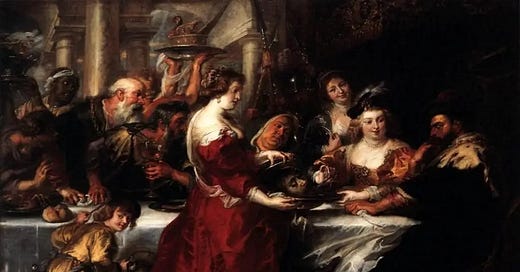



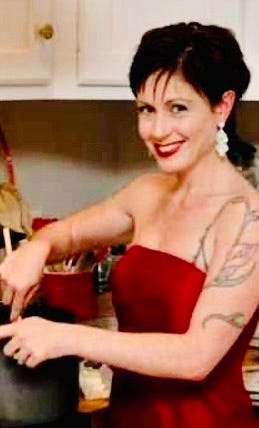
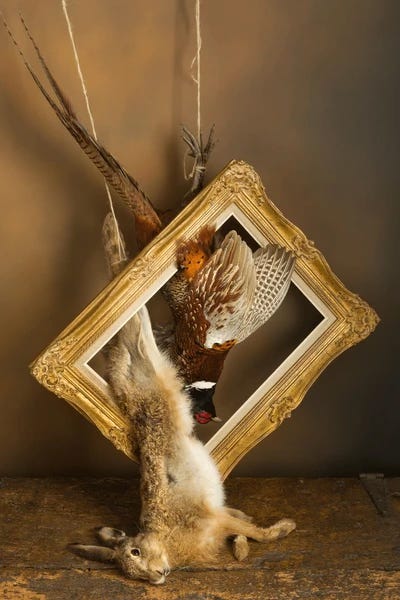
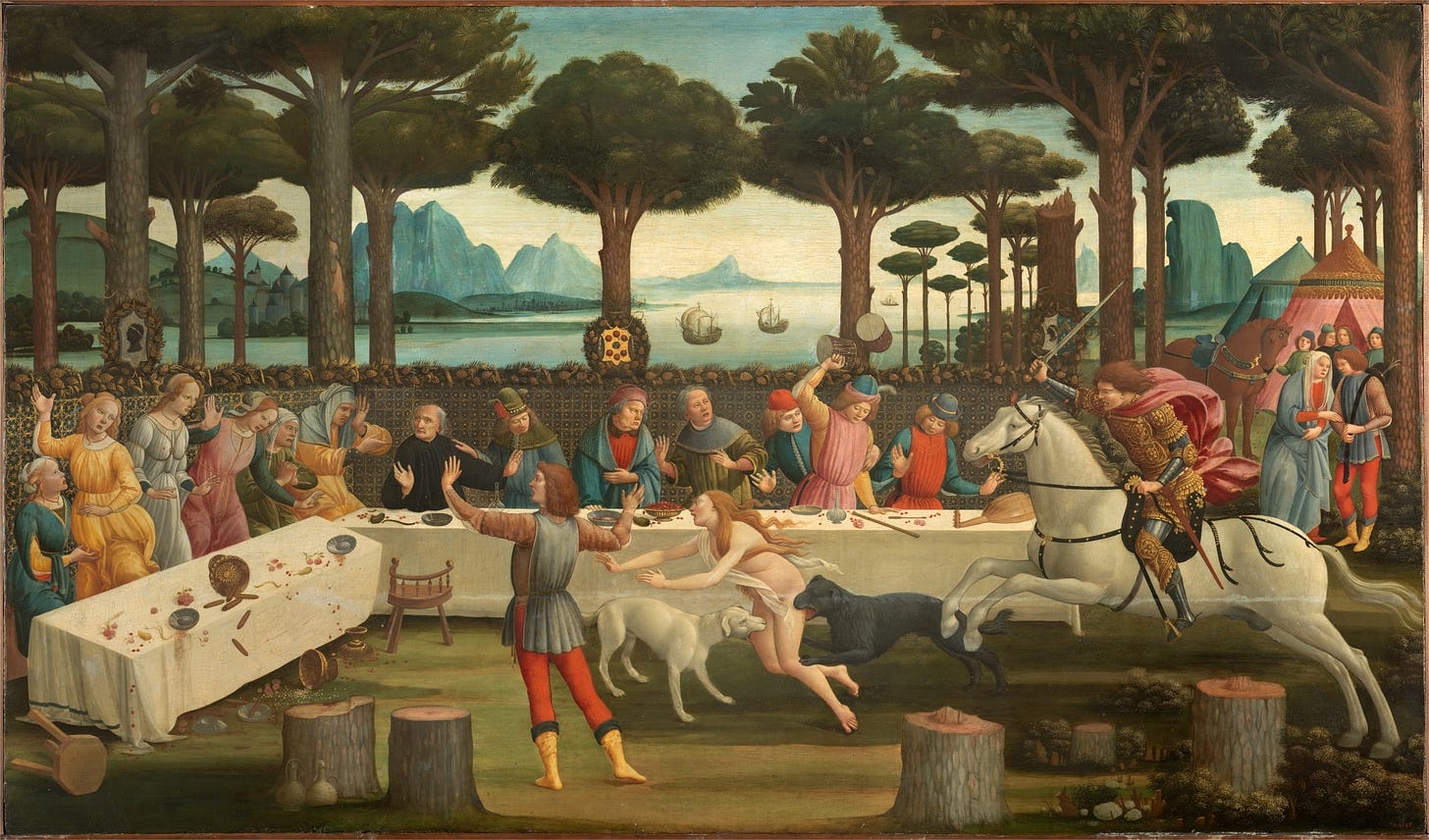
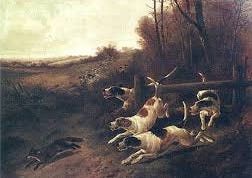
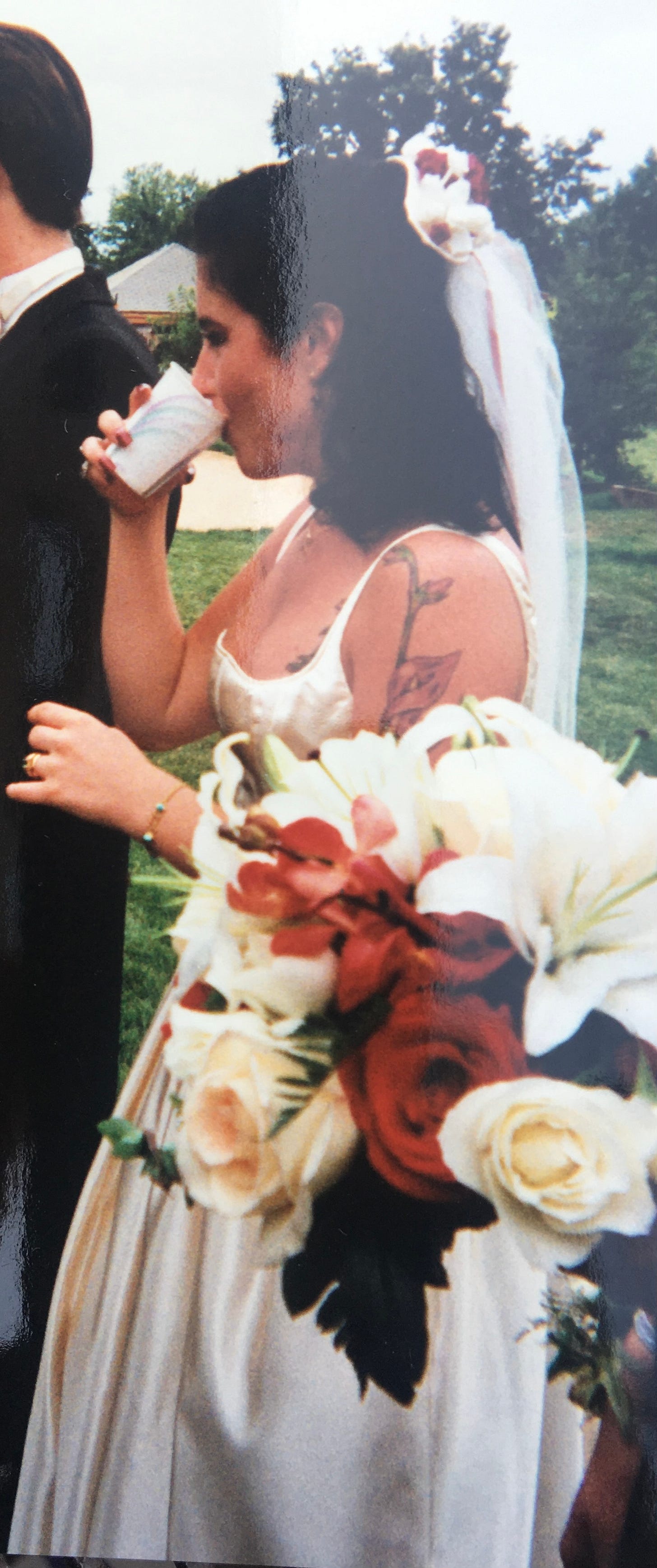
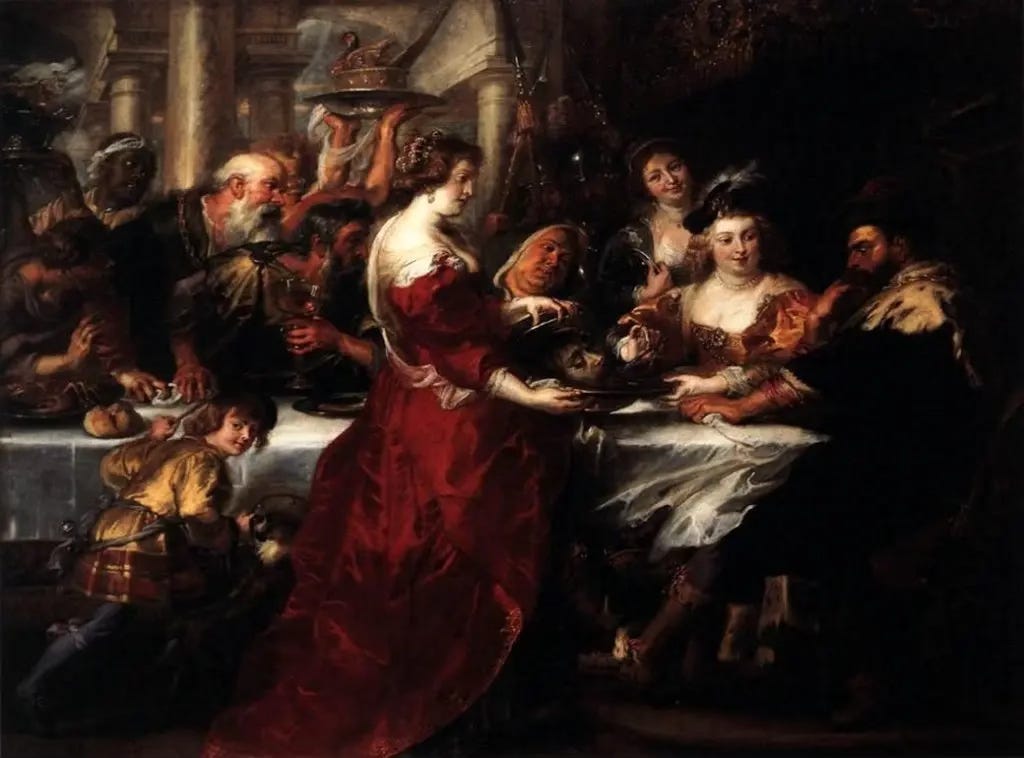
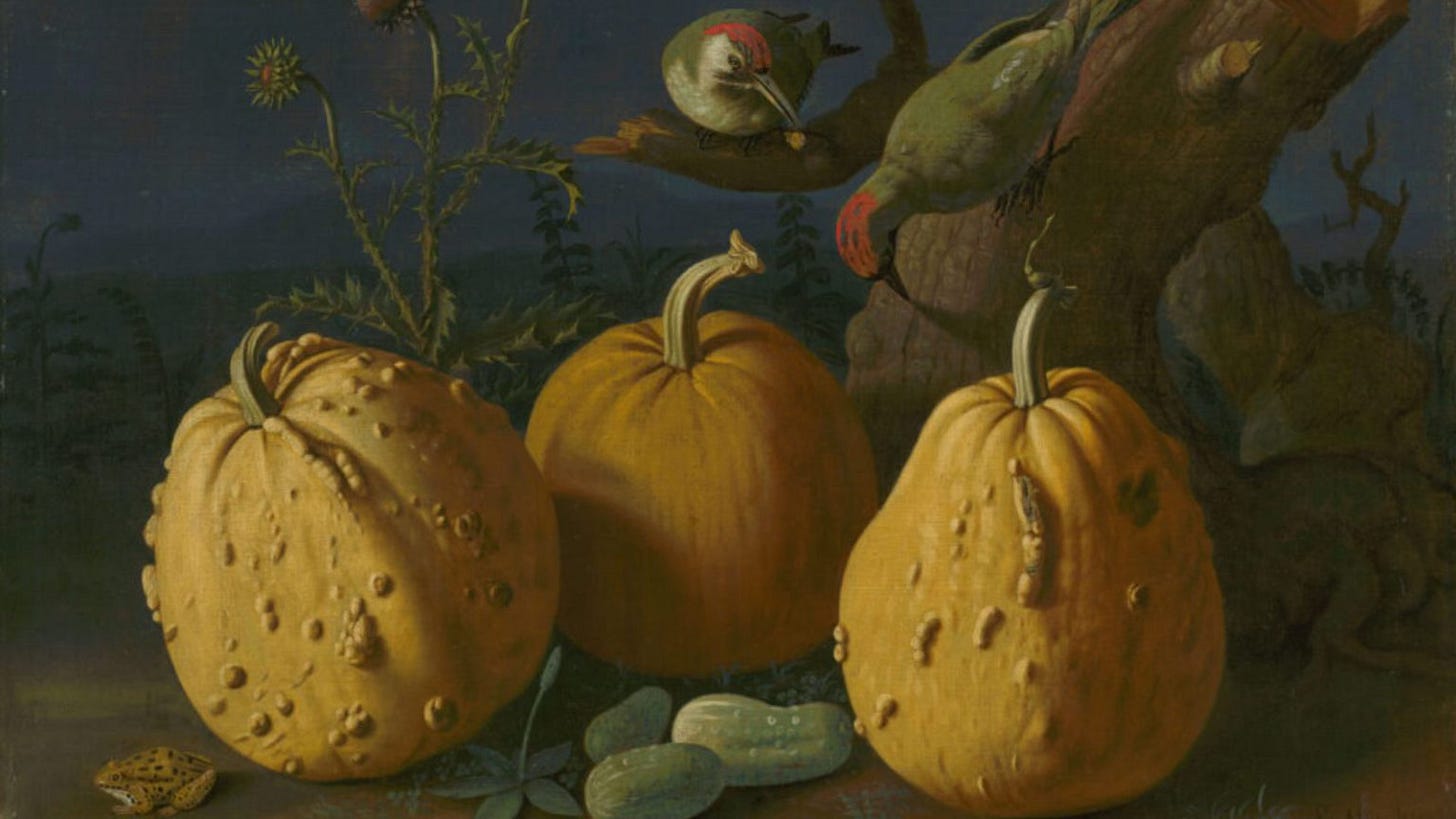
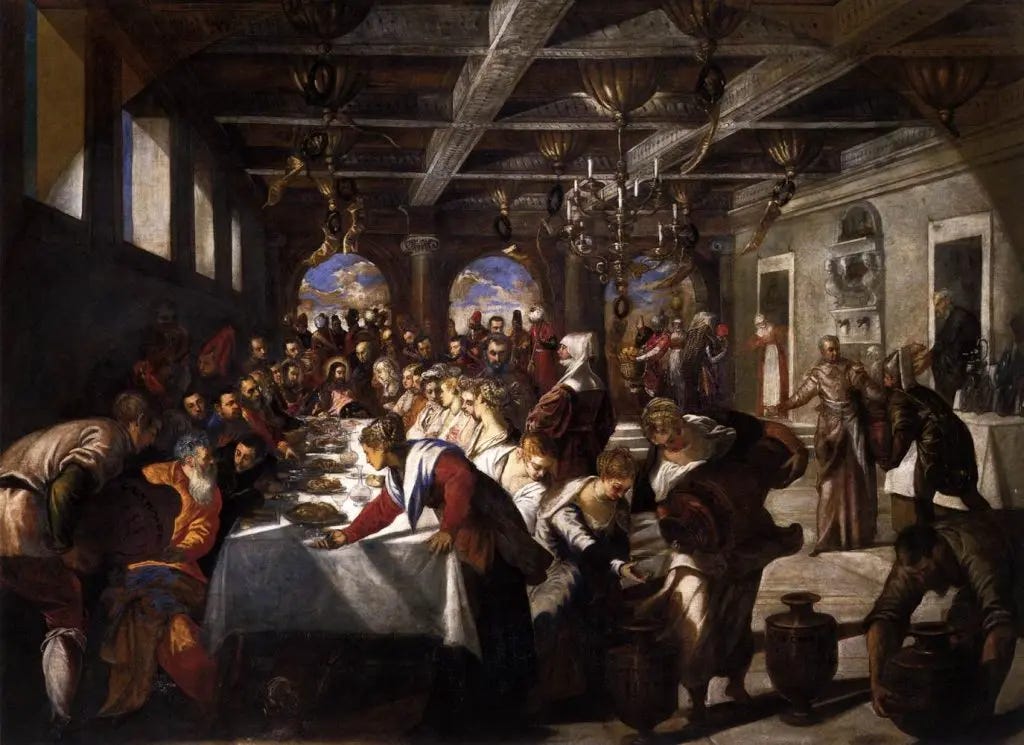
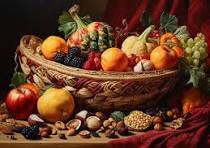

My god, this is perfect.
Wow -- what a read. :)